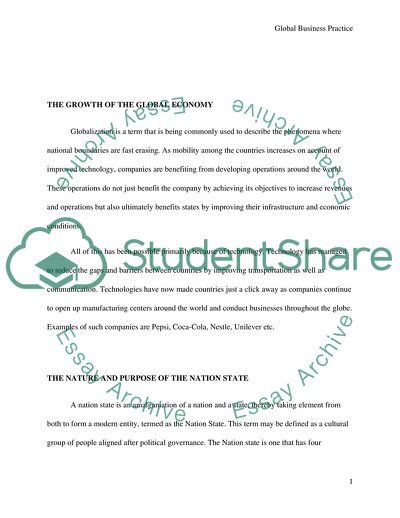Cite this document
(The Nature and Purpose of a Nation-State and the TNC Coursework, n.d.)
The Nature and Purpose of a Nation-State and the TNC Coursework. Retrieved from https://studentshare.org/macro-microeconomics/1800463-global-business-practice
The Nature and Purpose of a Nation-State and the TNC Coursework. Retrieved from https://studentshare.org/macro-microeconomics/1800463-global-business-practice
(The Nature and Purpose of a Nation-State and the TNC Coursework)
The Nature and Purpose of a Nation-State and the TNC Coursework. https://studentshare.org/macro-microeconomics/1800463-global-business-practice.
The Nature and Purpose of a Nation-State and the TNC Coursework. https://studentshare.org/macro-microeconomics/1800463-global-business-practice.
“The Nature and Purpose of a Nation-State and the TNC Coursework”. https://studentshare.org/macro-microeconomics/1800463-global-business-practice.


